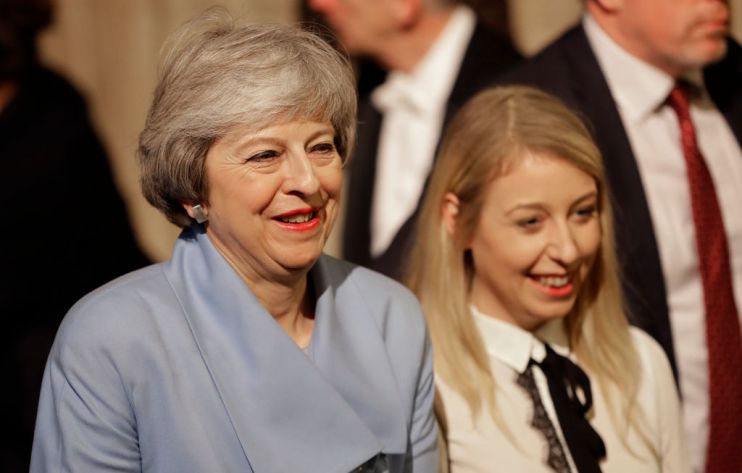Theresa May joins Tory rebellion against Boris Johnson’s foreign aid cuts

Theresa May has joined a group of 30 Tory rebels that are preparing to defy Boris Johnson and vote against his foreign aid cuts next week.
The growing group of backbenchers could hand the Prime Minister his first House of Commons defeat since his 2019 election victory by amending a bill to restore the UK’s annual aid spend to 0.7 per cent of national income.
It was cut by the government to 0.5 per cent of national income in order to reduce the Budget deficit left by the pandemic.
The rebellion is being led by former international development secretary Andrew Mitchell and includes members from all wings of the Conservative party.
May’s involvement will be the first time she has defied the party whip since Johnson became Prime Minister.
Defence Committee chair Tobias Ellwood said he was “cautiously confident” the rebellion would recruit enough MPs to overturn the government’s majority and force Johnson into a U-turn.
Mitchell told the Evening Standard: “We have implored ministers to reconsider breaking this commitment.
“The cuts are now having a devastating impact on the ground and are leading to unnecessary loss of life.
“We urge the government to think again, or we shall be asking parliament to reaffirm the law as it stands so as to oblige the government to meet its legal commitment, keep its very clear pledge to British voters and uphold Britain’s promise to the rest of the world.”
Other MPs joining the rebellion include Foreign Affairs Committee chair Tom Tugendhat, former development minister Sir Desmond Swayne, former defence minister Johnny Mercer and Women and Equalities Committee chair Caroline Nokes.,
Mitchell has tabled an amendment to the government’s Advanced Research and Invention Agency (Aria) Bill, which will create an £800m “high risk, high reward” research agency – a Dominic Cummings pet project.
The amendment says the “clause is intended to reaffirm the duty in the International Development (Official Development Assistance Target) Act 2015 for UK official development assistance (ODA) to amount to 0.7 per cent of gross national income each year”.
Aria would have “to make up any shortfall in that proportion from January 2022”.
It will be up to Commons Speaker Sir Lindsay Hoyle whether the amendment gets chosen.